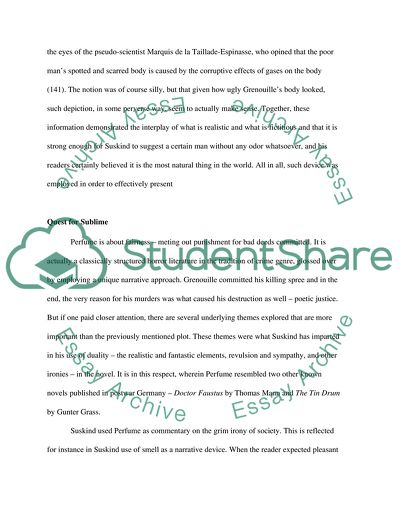Cite this document
(“Perfume Essay Example | Topics and Well Written Essays - 1250 words”, n.d.)
Retrieved from https://studentshare.org/miscellaneous/1572913-perfume
Retrieved from https://studentshare.org/miscellaneous/1572913-perfume
(Perfume Essay Example | Topics and Well Written Essays - 1250 Words)
https://studentshare.org/miscellaneous/1572913-perfume.
https://studentshare.org/miscellaneous/1572913-perfume.
“Perfume Essay Example | Topics and Well Written Essays - 1250 Words”, n.d. https://studentshare.org/miscellaneous/1572913-perfume.


